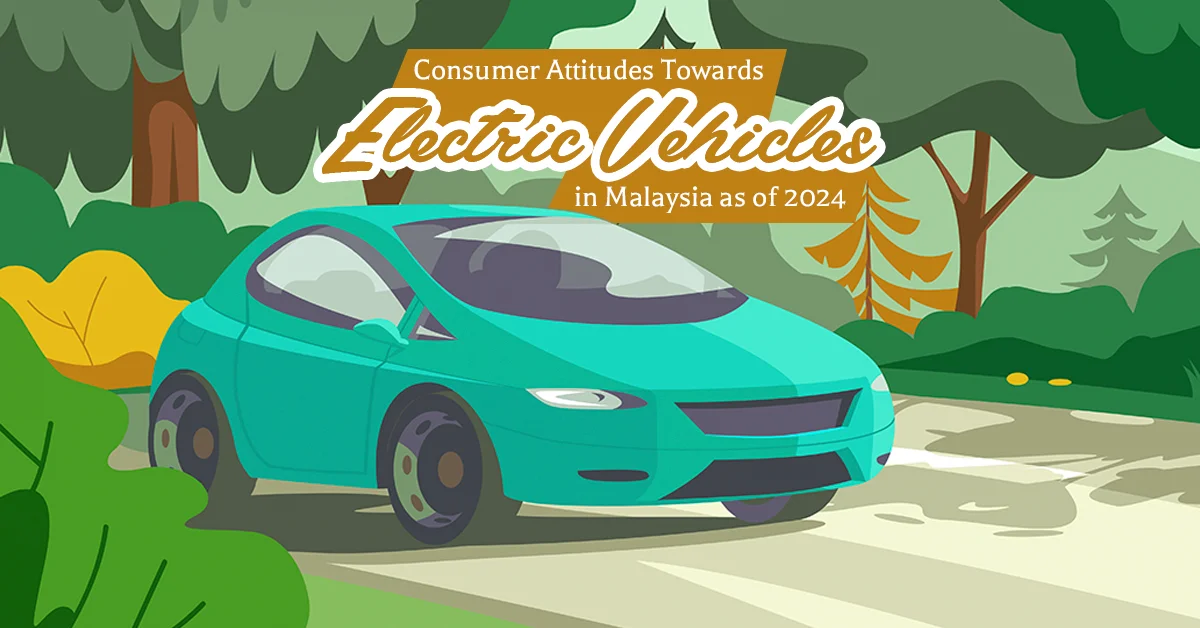
In 2024, Malaysia stands at a crossroads in its automotive journey, with electric vehicles (EVs) gaining traction amidst a global push for sustainability and cleaner energy sources. This article delves into the prevailing consumer attitudes towards EVs in Malaysia, exploring the nuances of what drives acceptance, the barriers to adoption, and how these perspectives are shaping the country’s automotive landscape.

The Rising Interest in EVs: A Market Overview
Malaysia’s interest in EVs has seen a significant uptick, attributed to various factors including government incentives, increasing environmental awareness, and advancements in EV technology. As of 2024, the sales of EVs have risen, marking a notable shift in consumer preferences. Government policies such as tax exemptions, rebates for EV purchases, and investment in charging infrastructure have played pivotal roles in bolstering consumer interest.

Consumer Perceptions and Drivers for EV Adoption
Environmental Concerns
One of the primary drivers behind the growing acceptance of EVs among Malaysians is the heightened awareness of environmental issues. Consumers are increasingly recognizing the role of EVs in reducing carbon emissions and combating climate change. Surveys indicate that a significant portion of Malaysian consumers views the adoption of EVs as a personal contribution towards a greener planet.
Economic Incentives
The cost-saving potential of EVs, particularly in terms of fuel and maintenance, is another critical factor influencing consumer attitudes. With the Malaysian government’s incentives reducing the initial purchase price, EVs are becoming more financially accessible. Additionally, the lower operating costs of EVs compared to conventional vehicles present an appealing proposition for many consumers.
Technological Advancements
The rapid advancements in EV technology, including improved battery life and enhanced performance, have made EVs more attractive to Malaysian consumers. The introduction of models with longer range capabilities and shorter charging times has addressed some of the initial concerns and hesitations related to EV adoption.

Barriers to EV Adoption
Despite the positive trends, several barriers remain in the path of widespread EV adoption in Malaysia.
Charging Infrastructure
The lack of widespread and accessible charging infrastructure remains a significant concern for potential EV owners. While urban areas have seen a growth in charging stations, rural and remote regions lag behind, creating range anxiety among consumers.
High Initial Costs
Even with governmental incentives, the initial purchase price of EVs can still be high compared to traditional vehicles. This price differential is a deterrent for a segment of the population, particularly in the absence of long-term financing options tailored for EV purchases.
Consumer Awareness and Education
A gap in consumer awareness and understanding of EV technology persists. Misconceptions about EV performance, safety, and the availability of support services hinder some consumers from considering an EV purchase.

The Road Ahead
To foster a more robust EV ecosystem in Malaysia, concerted efforts from both the government and private sector are essential. Expanding the charging infrastructure, introducing more financial incentives, and launching educational campaigns to address misconceptions and inform potential buyers about the benefits and logistics of owning an EV are critical steps.
As of 2024, consumer attitudes towards electric vehicles in Malaysia are characterised by cautious optimism. With environmental concerns, economic benefits, and technological advancements tipping the scales in favour of EV adoption, the future of electric mobility in Malaysia looks promising. Overcoming the existing barriers will require a multifaceted approach, combining policy support, market incentives, and consumer education to fully unlock the potential of electric vehicles in the Malaysian context.




